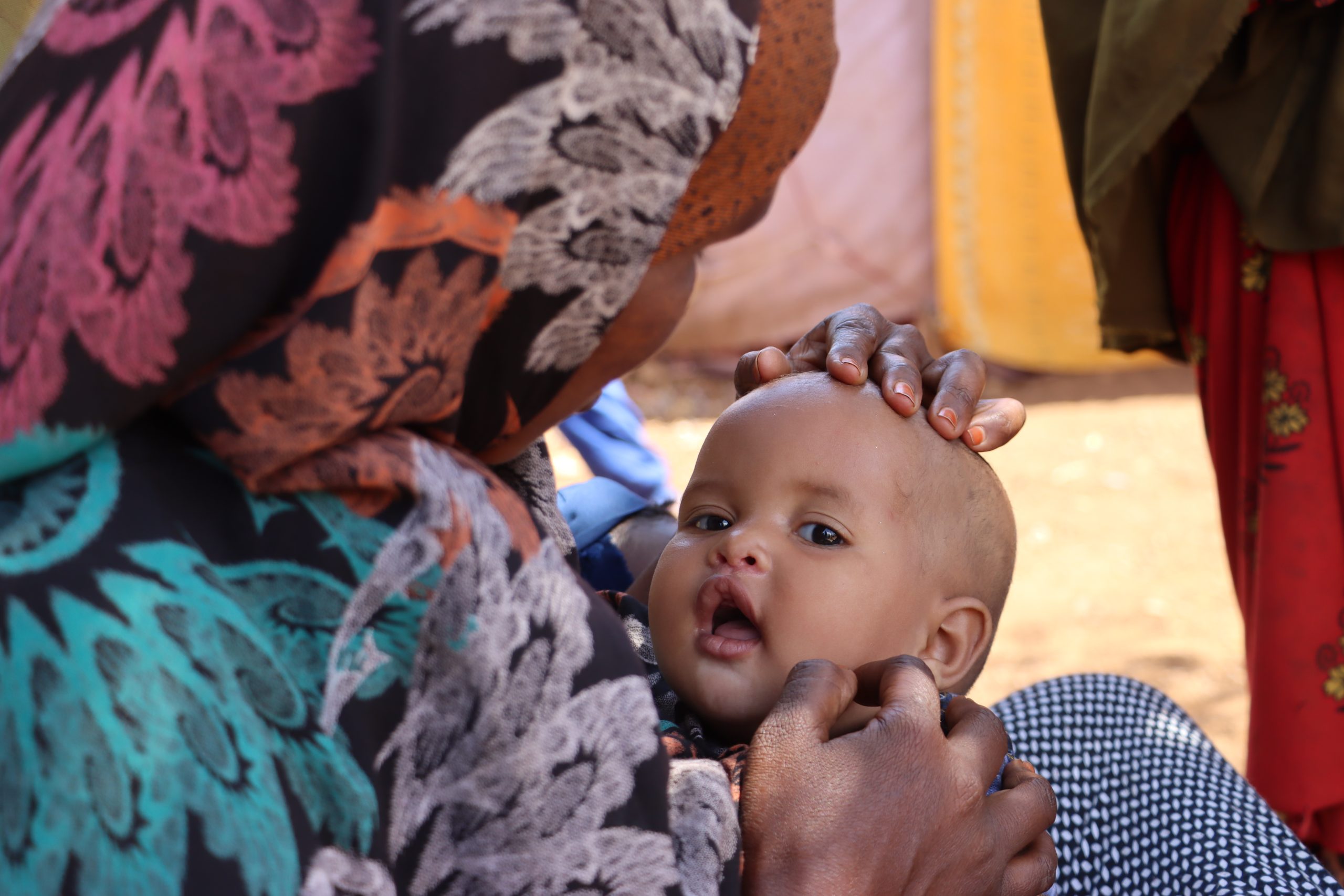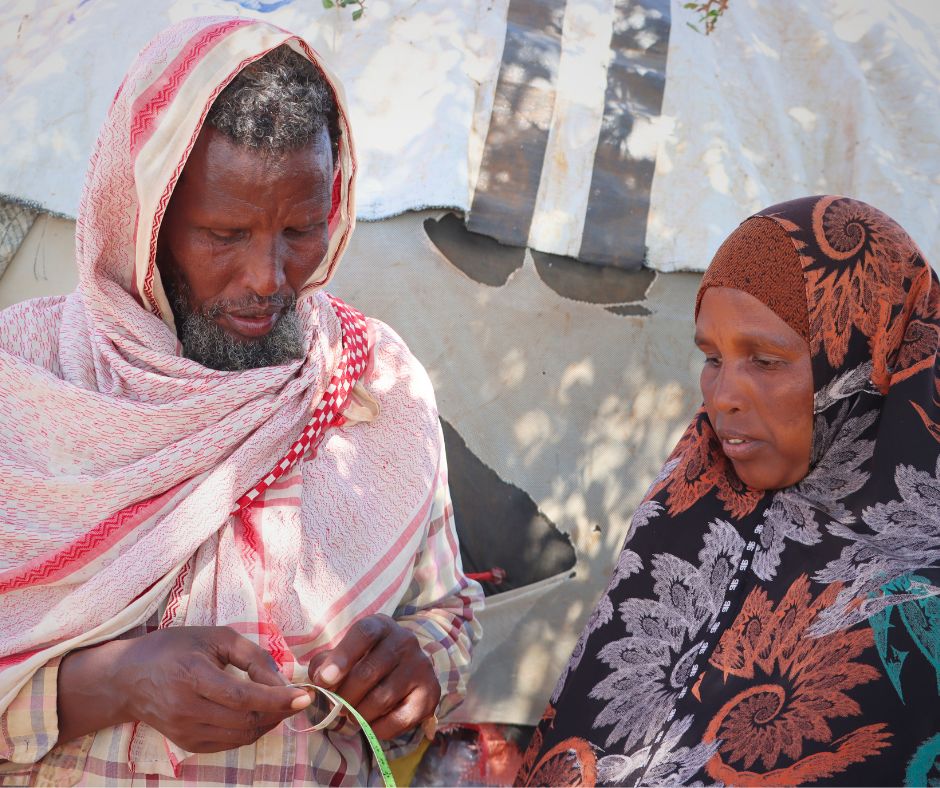In a displacement camp near Baidoa, 30-year-old Mama Habey Abdullahi is now a trusted voice in her community. As a mother of five, she knows firsthand the pain of seeing a child suffer from severe malnutrition. According to recent national statistics, over 25% of children in Somalia suffer from malnutrition, underscoring the widespread challenges faced by families like Habey’s. That experience changed her life.
“I didn’t know the symptoms,” Habey noted. “Our children became weak and sick, but I didn’t realize it was malnutrition. We thought it was enough to slaughter a goat and drink the soup to bring back strength. But that was not a solution.”
Droughts from 2021 to 2023 destroyed her family’s livestock and forced them to move to a makeshift camp. This wasn’t just a matter of losing cattle; the drought also amplified market prices and insecurity, posing severe challenges. In this environment, many families found themselves struggling to find enough food, and malnutrition became a constant worry. Here, Habey learnt a simple tool that changed everything: the Family MUAC tape.
In 2024, a community health worker showed Habey and her husband how to use the tape, which measures a child’s upper arm to spot early signs of malnutrition. Habey keeps the tape out of her children’s reach and uses it every day, checking her own kids and helping her neighbors, too.
Her youngest daughter, nine-month-old Nasteho, is a daily reminder of the importance of prevention. Habey continues to breastfeed her while monitoring her nutrition closely. “I want to make sure she never goes through what my other child experienced,” she says.

Habey now helps more than just her own family. Other families in the camp come to her for advice. She works closely with community health workers, letting them know when children are sick or malnourished so they can get help fast.
According to Action Against Hunger (ACF), which has pioneered the Family MUAC approach in Somalia, empowering parents with this skill is a game-changer.
“Family MUAC puts the power to detect malnutrition directly in the hands of caregivers,” explains Kahdija Mohamed, an ACF nutrition officer in Baidoa. “It means children are identified much earlier, long before their condition becomes life-threatening. That simple step saves lives.”
The program also helps busy health clinics and mobile teams by letting parents like Habey act right away, instead of waiting for a health worker to visit. Identifying problems early helps keep children healthier and makes treatment more affordable.
Between 2024 and 2025, thousands of families across Somalia have been trained in Family MUAC through ACF and its partners under the CaafimaadPlus consortium with funding from the European Union Humanitarian Aid. In Baidoa alone, the approach has helped identify and refer hundreds of children for treatment in a timely manner.
For Habey, the training represents more than a tool. It has given her confidence and purpose.
“Before, I felt helpless when my children became weak,” she says. “Now I can act. I can protect my children and even help other mothers do the same.”
As per Somalia Nutrition Cluster, recent funding cuts have reduced outpatient therapeutic program (OTP) sites from 775 in January to 629 in July 2025, and targeted supplementary feeding program (TSFP) sites from 617 to just 300, disproportionately affecting rural and hard-to-reach communities.
In this context, Family MUAC becomes even more critical. By empowering parents to identify early signs of malnutrition at home, children can be detected and referred for treatment before their condition becomes severe, helping mitigate the impact of reduced service coverage.
For mothers like Habey, it is not just about measuring an arm — it is about safeguarding the future of their children and their community.






